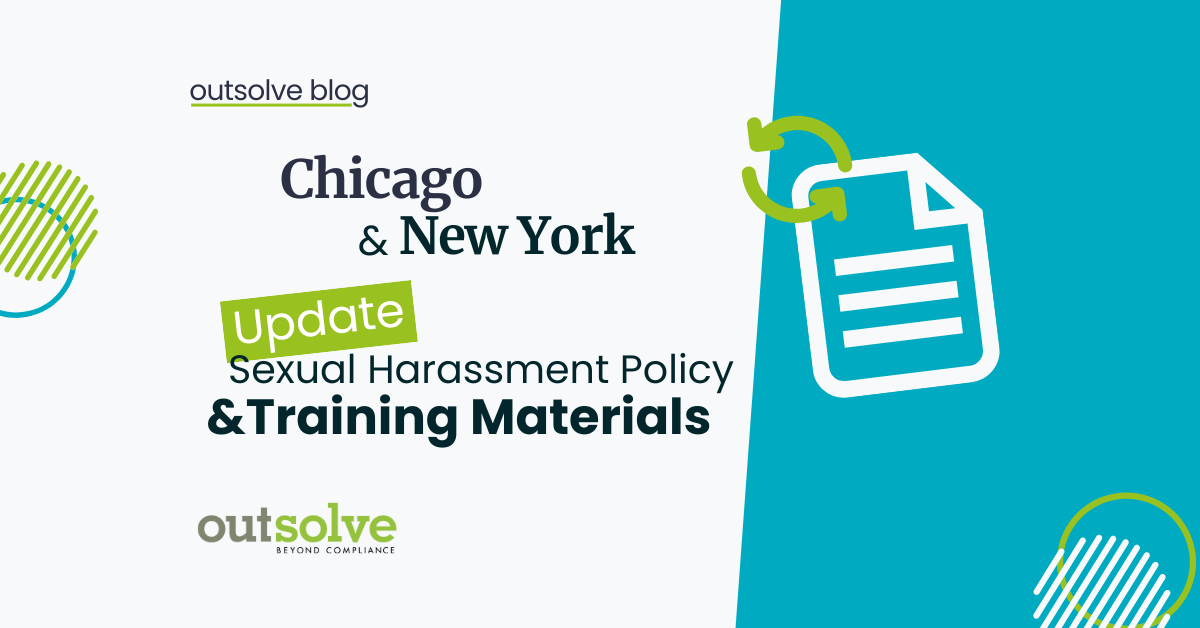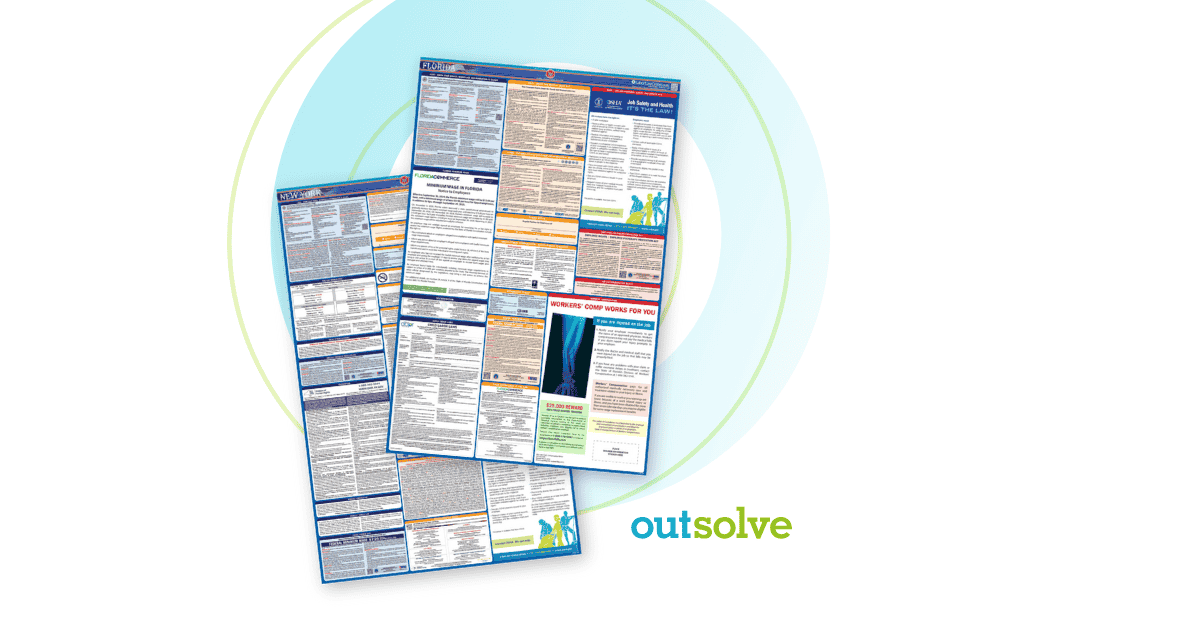2 min read
Chicago and New York Update Sexual Harassment Policy and Training Materials
![]() OutSolve
:
Jun 23, 2023 3:47:16 PM
OutSolve
:
Jun 23, 2023 3:47:16 PM

New York makes substantial changes to its policy and training requirements and both New York and Chicago require annual sexual harassment training.
As we previously reported, effective July 1, 2022, the city of Chicago amended its sexual harassment ordinance by expanding its definition of sexual harassment to include sexual misconduct. The amendment required employers to have a sexual harassment policy displayed to all employees. The amendment also requires all employees participate in sexual harassment prevention training annually. In its recent guidance, the city clarified the definition of "employer" to include any organization with employees in Chicago. The training requirement applies to “all employees working in Chicago, even if remote, and their managers or supervisors, even if the managers or supervisors work outside of Chicago.”
On April 11, 2023, the state of New York updated its sexual harassment prevention materials which include a revised model policy, complaint form, and training materials. New York has required employers to adopt the state’s model sexual harassment policy or maintain their own policy that meets or exceeds the state’s standards. The substantial changes to the model policy include:
- Defining sexual harassment as a form of “gender-based” discrimination, to encompass gender diversity and gender role stereotyping, providing definitions for cisgender, transgender, and nonbinary persons
- Including language indicating that sexual harassment does not need to be severe or pervasive to be illegal
- Expanding the retaliation section to include a few examples, such as disparaging someone on social media, publicly releasing personnel files, or labeling someone as “difficult”
- Emphasizing that managers and supervisors must act if they observe harassing behavior and must be mindful of the impact of investigations
- Explaining that the intent of behavior is not a defense and that the action will be evaluated based on the reasonable victim’s standpoint, and
- Adding a new section on bystander intervention.
- Referencing the Division of Human Rights’ (DHR) sexual harassment hotline.
- Individuals can use the hotline for attorney referrals and obtain information about filing a complaint.
An employer’s policy must be provided to all employees upon hire either in person, digitally, or on a shared network available to remote employees.
The updated training materials contain case studies and examples of how sexual harassment is affected by remote work and other issues. The key revisions to the model training materials include:
- Instructing trainers to:
- Provide a warning that the “subject matter can be sensitive or difficult for some employees, including those that might have experienced harassment, discriminations or violence in the past.”
- Make clear to the training participants that they may step out of training briefly if they need to do so for their mental health.
- Adding a section on gender identity that includes defining cisgender, transgender and nonbinary
- Providing examples of potential methods of bystander intervention
The New York State Department of Labor (NYSDOL) has issued a new training video which is available for employers to use in their annual training.
%20(1).png?width=300&height=80&name=OutSolves%20Take%20(300%20%C3%97%2080%20px)%20(1).png)
Chicago employers should review their sexual harassment policies and training programs to ensure compliance prior to the June 30, 2023 deadline. The city of Chicago has a comprehensive webpage providing employers with support of its sexual harassment requirements, including policy statements and posters in multiple languages, training, and outreach material.
New York employers should review their employee handbook and sexual harassment training program to determine if updates and changes are needed to comply with the recent guidance. New York State has the following resources available:
Founded in 1998, OutSolve has evolved into a premier compliance-driven HR advisory firm, leveraging deep expertise to simplify complex regulatory landscapes for businesses of all sizes. With a comprehensive suite of solutions encompassing HR compliance, workforce analytics, and risk mitigation consulting, OutSolve empowers organizations to navigate the intricate world of employment regulations with confidence.
Recent Posts
Related Posts

Former DOL Officials Issue Open Letter to Federal Contractors
On April 15, 2025, ten former senior officials from the U.S. Department of Labor (DOL), including past leaders of the Office of Federal Contract...

The Ultimate Guide to Multi-State Labor Law Posters
Human Resources professionals understand how important and challenging it can be to remain updated and compliant with labor laws. This is especially...

Countdown: Final Days of the 90-Day Safe Harbor Period for AAPs
April is here and with that comes the end of the 90-day safe harbor period for federal contractors complying with EO 11246. As April 21, 2025,...


